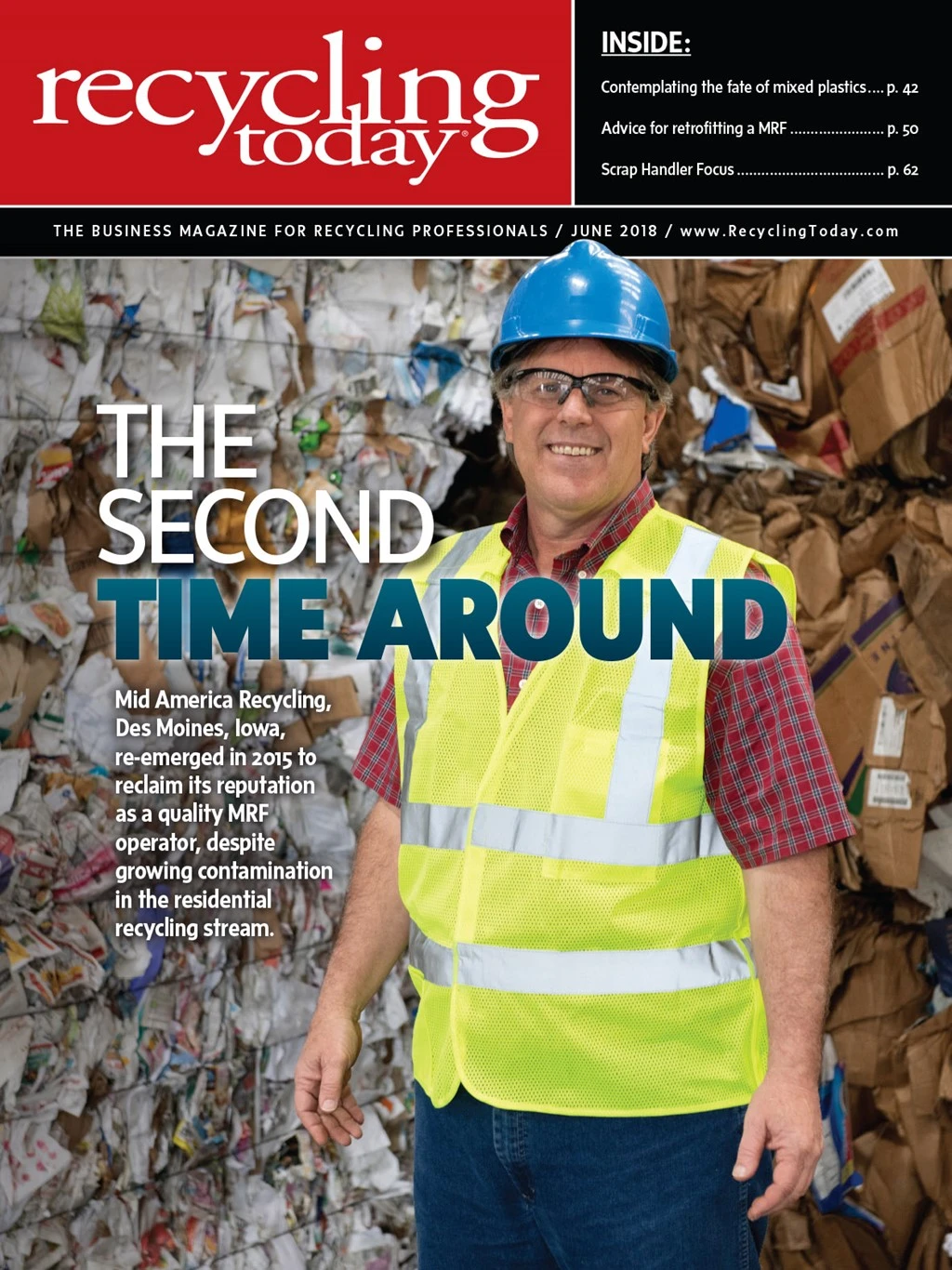The Brussels-based Bureau of International Recycling (BIR) reported May 15 that it learned the General Administration of Customs of the People’s Republic of China (GACC) will allow the import of high-grade polyethylene terephthalate (PET) bottle flake as general goods without the need for a license. Additionally, the BIR said, the GACC would allow imports of recycled plastic pellets as general goods without the need for a license, provided each batch is of the same color with a uniform particle size and shape and packaged uniformly.
The association was able to confirm this information with the Chinese Ministry of Ecology and Environment a couple of days later. (An English translation of the official document can be accessed at https://bit.ly/2rTGdHp.)
Materials falling under category A, B and C as defined in the “Textile Industry Standard of the People’s Republic of China: Regenerated Polyester (PET) Bottle-Grade Chips” that meet the criteria can be imported as ordinary goods without the need for a license, the BIR says. (An English translation can be read at https://bit.ly/2KLzzdp.)
Steve Wong, executive president of the China Scrap Plastic Association (CSPA), chairman of Hong Kong-based Fukutomi Co. Ltd. and a member of two BIR committees, writes in the BIR World Mirror: Plastics for May that China’s ban on postindustrial plastic scrap will take effect at the end of this year. “Given the substantial decrease in the number of import permits approved in the first three months of the year (Only 52,396 tons of plastic scrap imports were approved in permits issued in the first four months of this year.), the impacts felt by the plastic recycling industry are insignificant,” he continues. “Many Chinese recyclers who are still relying on imported plastic scraps will have sufficient time to shift their operations to alternative locations if needed.”
Wong writes that Chinese recyclers are estimated to have invested $1.6 billion into operations outside of China. “With more factories moving to Southeast Asia and increasing their production capabilities, it is estimated that these countries will satisfy nearly 5 million tons of China’s recycled pellet demand by the end of this year. The supply/demand mismatch in China will remain in the interim.”
While Wong notes that commodity grade recycled resin pellets increased in price for April relative to February, Grade B PET bottle bales off the U.S. West Coast lost half their value in April, falling from $300 per ton to $150 per ton. “Some scrap even had zero value.”
Chinese recyclers are estimated to have invested $1.6 billion into operations outside of China, says Steve Wong, executive president of the China Scrap Plastic Association.
Some forms of
The glut of mixed plastics bales available in the United States has led some processors to accept these bales for further sorting. In March, one reclaimer based in the Southeast began accepting Nos. 1-7 plastic bales with the goal of recovering the high-density polyethylene (HDPE) for internal processing and the PET, which it would sell to its neighbor Unifi. Plastic Revolutions, Reidsville, North Carolina, invested $600,000 in new equipment and created 35 new jobs sorting this material by hand. However, the company’s General Manager Ed Handy says Plastic Revolutions was reconsidering its approach because the material is too difficult to economically sort by hand. (See “Mixed messages,” starting on page 42, for more on mixed plastics.)

Explore the June 2018 Issue
Check out more from this issue and find your next story to read.
Latest from Recycling Today
- Orion ramping up Rocky Mountain Steel rail line
- Proposed bill would provide ‘regulatory clarity’ for chemical recycling
- Alberta Ag-Plastic pilot program continues, expands with renewed funding
- ReMA urges open intra-North American scrap trade
- Axium awarded by regional organization
- Update: China to introduce steel export quotas
- Thyssenkrupp idles capacity in Europe
- Phoenix Technologies closes Ohio rPET facility





